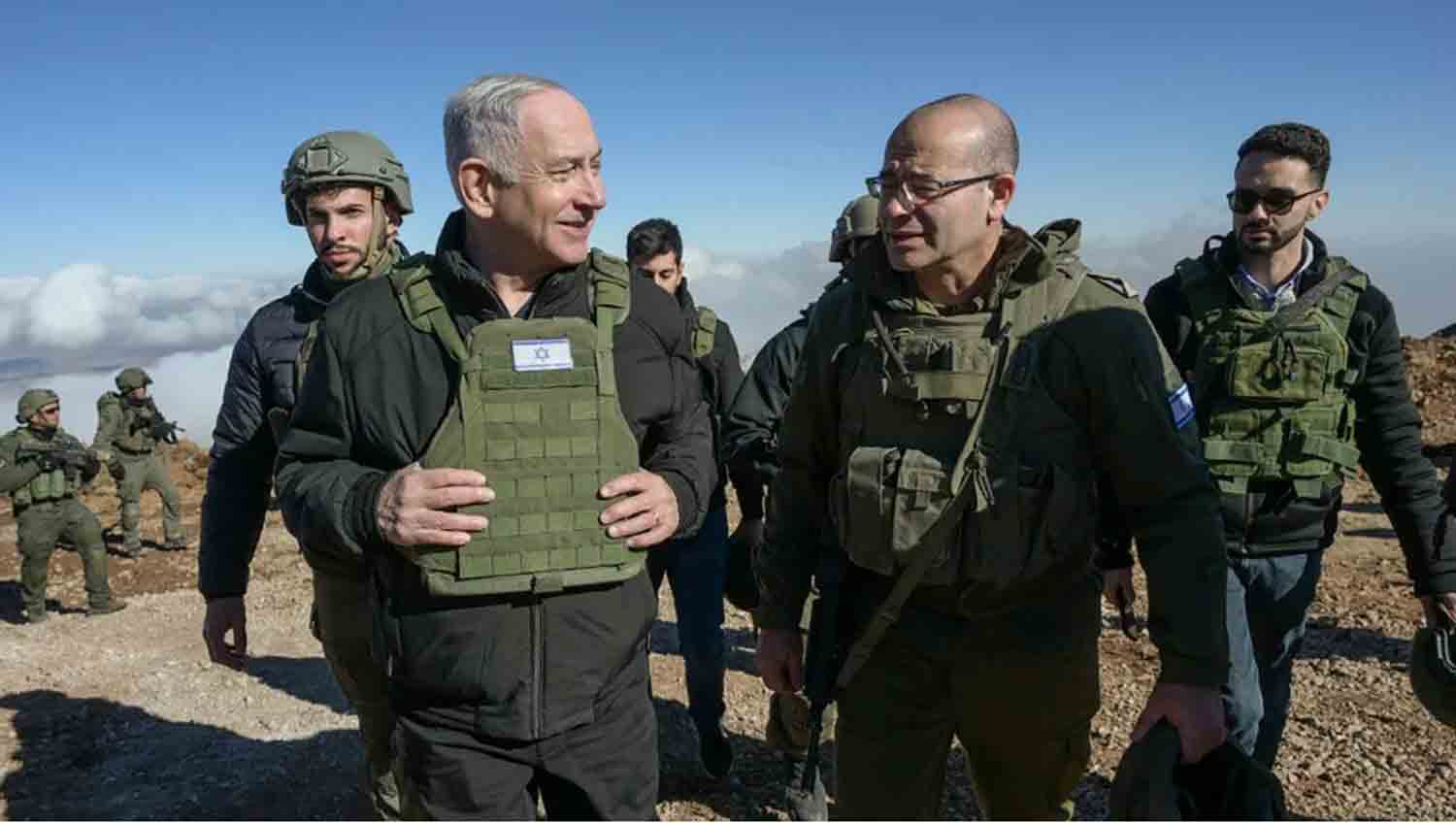Israeli ministers are said to have convened this week to deliberate on confidential strategies aimed at partitioning Syria into provincial regions.
According to Israel Hayom, Defence Minister Israel Katz led a small ministerial gathering on Tuesday that concentrated on Turkey’s role in Syria and the objectives of Syria’s de facto leader, Ahmed al-Sharaa, who is also known by his nom de guerre Abu Mohammed Jolani, the commander of Hay’at Tahrir al-Sham (HTS).
The meeting took place ahead of an upcoming discussion with Prime Minister Benjamin Netanyahu, during which the ministers reportedly revisited an Israeli initiative initially disclosed by Middle East Eye in December.
This initiative proposes the division of Syria into provincial regions, or cantons, which Israel Hayom characterized as a means to “protect the security and rights of all Syrian ethnic groups,” including the Druze and Kurdish communities.
Eli Cohen, Israel’s Minister of Energy and Infrastructure, is reported to have recommended that this proposal be considered at an international conference organized by Israel, although Israeli politicians are aware that any initiative linked to their country is likely to encounter considerable opposition within Syria.
In December, regional security sources said a plot indicating that the ousting of Bashar al-Assad’s regime had disrupted an existing Israeli strategy aimed at fragmenting Syria into three distinct regions. This plan was intended to sever Syria’s connections with Iran and Hezbollah, both of which were backing Assad.
Israel’s strategy involved forging military and strategic alliances with the Kurdish forces in northeastern Syria and the Druze community in the south, while allowing Assad to remain in power in Damascus, supported by Emirati funding and oversight.
Additionally, this approach aimed to curtail Turkey’s influence in northwestern Syria, an area dominated by HTS and Turkish-backed rebel factions that played a significant role in Assad’s downfall.
The outlined plan seems to align with discussions held recently by Katz and other Israeli officials, and it was referenced in a speech last November by Israeli Foreign Minister Gideon Saar.
Saar emphasized the necessity for Israel to engage with the Kurds and Druze in both Syria and Lebanon, noting that there were important “political and security aspects” to consider.
“We must analyze developments within this framework and recognize that in a region where we will always be a minority, we can form natural alliances with other minority groups,” Saar stated.
Turkey and Israel in Syria
However, this sentiment does not appear to be widely shared. In December, Sheikh Hikmat al-Hijri, the leader of Syria’s Druze community, denounced Israel’s actions in Syria, asserting the need for his country to preserve its social and territorial integrity.
In an exclusive interview with MEE from his residence in Qanawat, a town in the Sweida province of southern Syria, Hijri expressed his concerns, stating, “The Israeli invasion worries me, and I reject it.”
Hours after the HTS-led rebels overthrew the Assad regime on December 8, Israel commenced the deployment of troops into Syrian territory.
The incursion originated from the Golan Heights, a region that Israel has controlled since 1967.
Israeli security officials have indicated that Israel intends to retain its positions in the seized areas until they determine that “stability” has been restored.
The strategy to partition Syria underscores the apprehensions within Israel’s leadership regarding the growing Turkish influence in the region.
On Monday, an Israeli government commission warned that Turkey could represent a more significant threat to Israel than Iran in Syria, particularly if it supports a hostile “Sunni Islamist” faction in Damascus.
Ankara has positioned itself as a key beneficiary of Assad’s downfall, having provided support to HTS and other rebel groups that played a crucial role in the offensive that led to his ousting.
Discover more from Defence Talks | Defense News Hub, Military Updates, Security Insights
Subscribe to get the latest posts sent to your email.





